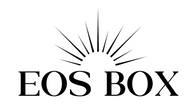For anyone who is serious about achieving meaningful personal and professional growth, the setting of effective goals is hugely important.
Professionals in the UK and across the world need to navigate hybrid work models, unpredictable economic shifts, and evolutions (sometimes revolutions) in their industries.
Such a tumultuous landscape underscores the importance of such professionals devising well-crafted goals. Certainly, some goals are likely to be less useful than others.
This article, then, won’t merely provide some examples of personal goals in the workplace. That’s because we will also explore practical and actionable strategies for setting goals that will help deliver results.
Why Is It So Important to Set Goals?
In almost any line of work, but particularly in some of the most competitive industries like finance, tech, and healthcare, savvy goal-setting can help individuals stand out.
Setting professional goals can help a given person achieve more at work. It can help provide a clear sense of direction, boost motivation, and foster the acquisition of new skills.
Goals can act as a crucial roadmap for an individual’s personal and professional development. The setting of goals, then, can help the given person stay focused on important objectives, increase their value in the job market, and align their efforts with their desired career path.
When a particular individual has set well-chosen professional goals for themselves, this can help significantly increase their engagement at work.
When you consider that highly engaged business units have been found to experience 78% lower absenteeism and 14% higher productivity, it should soon become clear to you just how powerful goal-setting can be for fuelling a person’s success. This can then feed through to organisational success.
The SMART Framework: A Proven Starting Point
A globally recognised tool for goal setting, which is also a good match for the UK’s results-driven workplaces, is the SMART framework.
The letters stand for Specific, Measurable, Relevant, and Time-bound – and here is how they can be applied:
-
Specific
Vague goals, such as “improve leadership”, should be avoided. Instead, specific details ought to be included in any new goal, such as “I will lead a cross-departmental project by the second quarter of 2026”.
Or for those who are a new hire for their organisation, an appropriate specific goal might be: “I will become proficient with all company-specific software and key processes within the first month, by completing all required training modules and shadowing a senior co-worker”.
-
Measurable
It is also vital for an ambitious professional to quantify their progress.
They may set a goal of, for example, “increasing my sales conversion rate by 10% within six months”, or “improving the click-through rate of email campaigns by 20% within three months through A/B testing”.
-
Achievable
A realistic mindset needs to be employed in determining goals. A junior analyst, for instance, would be ill-advised to set a goal of becoming a chief financial officer (CFO) within 12 months.
However, they could realistically target the mastery of advanced Excel skills by the middle of 2026, or they could set a goal of attending three or more industry events per month, for the next three months.
-
Relevant
Goals should be aligned with the given professional’s role and the trends in their industry.
For instance, in the UK’s fast-expanding green economy, a goal like “complete a sustainability certification” could significantly help an individual enhance their relevant knowledge, demonstrate their expertise, and boost their career prospects in related fields such as green building and sustainable finance.
-
Time-Bound
Setting a deadline for a goal can help to instil urgency and maintain focus. By providing a clear timeline, professionals can boost the likelihood of achieving a given goal.
So, their goal could be something like: “I will complete an online course on data analysis by June 2026”, or “I will reduce the onboarding time for new hires by 15% over the next three months, by creating a new online training module and assigning mentors to each new employee”.
Clear Goal Setting Can Provide a Springboard for Success
Hopefully, this article will have helped give you an appreciation of how, with the help of the SMART framework, it doesn’t have to be overly difficult to set achievable professional development goals to improve your career.
Are you looking to recognise and reward your employees’ efforts to set and achieve goals? If so, don’t forget that here at EOS BOX, we offer an easy-to-use corporate gift box builder on our website.
Letter from G:
My mind can wander like nobody’s business - chasing random thoughts and getting side tracked was practically my superpower! But when I started implementing goals, everything clicked. Being specific about what I wanted to achieve and having clear outcomes to aim for kept me focused and fired up. It’s like those goals gave me a roadmap, making me way more productive and honestly boosting my confidence big time. I felt motivated to tackle my work instead of just spinning my wheels. That's why it's so important to have knowledge around tools like SMARTER goals.
I also know the feeling if you're making all the effort but not being recognised at work. The motivation does fade when no one is in your corner! If I'd had a small gift or words of encouragement from my boss it would have made a whole world of difference to how I felt coming to work everyday. That's why I push having wellbeing in the workplace - encourage your employees, it doesn't always need to be a prize but even just showing that you care about their wellbeing can increase their morale and productivity.
I'm here to help!
Love G xxx





